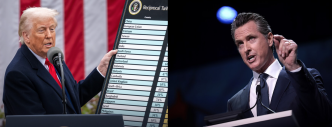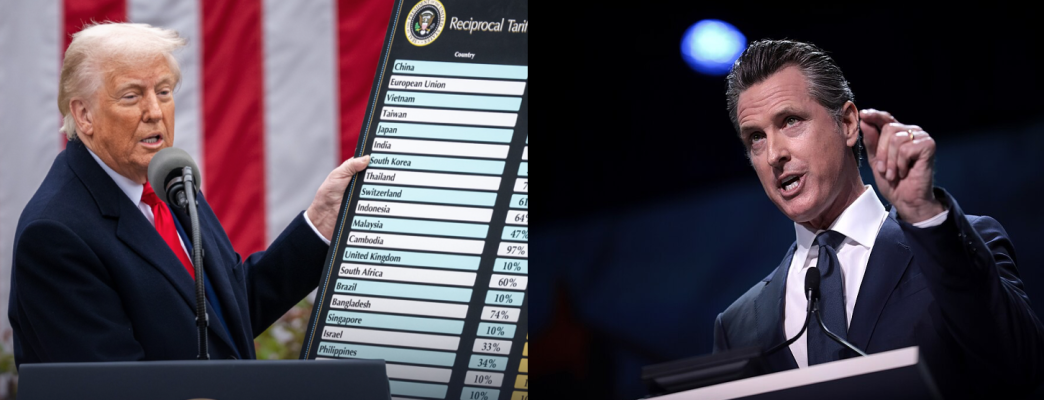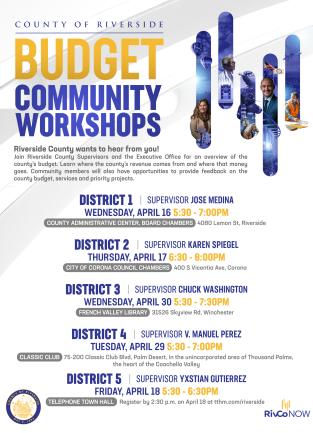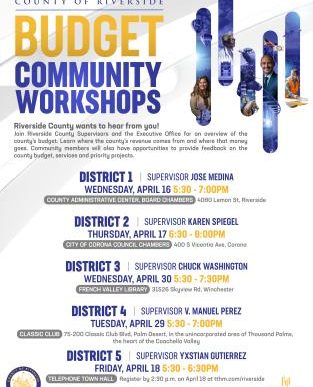California Gov. Gavin Newsom on Wednesday echoed an announcement he made last week touting the state’s economic prowess in response to President Donald Trump’s policies.
The state’s economy is the world’s fifth-largest and will continue as a leader in global trade and investment, while the Trump economic agenda “disrupts the national economy, sends markets spiraling and creates trade wars with trusted partners,” according to the governor’s office.
“California knows the importance of trust and dependability, and unlike some folks in Washington, D.C., we don’t change the rules with every presidential mood swing,” Newsom said in a statement. “California is a trusted, reliable partner for international trade and investments. We urge countries around the globe to continue to work with us — we’re open for business.”
Trump has vowed to reverse free-trade policies.
“For decades, the United States slashed our trade barriers on other countries, while those nations placed massive tariffs on our products and created outrageous nonmonetary barriers to decimate our industries,” the president told reporters Monday at the White House. “They manipulated their currencies, subsidized their exports, stole our intellectual property, imposed exorbitant VAT taxes to disadvantage our products, adopted unfair rules and technical standards, and created filthy pollution havens. This all happened with no response from the United States of America, but those days are over.”
Just after midnight Wednesday, dozens of countries started facing steeper “reciprocal” tariffs from the U.S., but by Wednesday afternoon, the Trump administration said it would suspend these higher rates for 90 days, and instead maintain a recent 10% levy on nearly all imported goods.
China, however, was an exception. Trump said on social media that he would increase import taxes on Chinese goods to 125% “effective immediately” — escalating retaliatory levies that have mounted between the two global economic giants.
California is a powerhouse in international trade in its own right to the tune of over $675 billion annually, which is more than 16% of the state’s total economic output, officials reported. The nation’s top exporter, California sends agricultural products for sale in markets worldwide. Manufactured goods also dominate the state’s exports, including computers, over $16 billion; aerospace parts and products, more than $8.3 billion; and semiconductor chips and equipment, nearly $6.5 billion.
California is also consistently has the most U.S. jobs supported by foreign direct investment, according to Newsom’s office. The United Kingdom and Japan, respectively the state’s No. 1 and No. 2 sources of investment, combined support over 257,000 jobs. International investors also provide significant institutional investments that support jobs, such as the eight largest pension funds’ $100 billion stake in California.
In recent years California has established agreements on clean energy, technology and climate with the European Union, China and Canada that have created jobs.
The state has trade partnerships with Armenia, China, Japan, Norway, New Zealand, Netherlands, Australia, Sweden, Republic of Korea, Brazil, Mexico, and Norway.
“Many other climate-focused partnerships include expanding commercial ties with strategic allies, recognizing the importance of private sector action,” according to Newsom’s office.
State officials also continue to establish industry partnerships and develop long-term economic strategies in an effort to establish “the infrastructure to give businesses confidence and consistency.”
Earlier this year, the state’s Economic Blueprint, a plan built with input from 13 regional plans aimed at driving sustainable economic growth, innovation and access to good-paying jobs through the next decade.
“California has rebounded from economic downturns faster than most, with diverse industries driving growth, from agriculture to AI,” according to the governor’s office.
Officials said the state’s economy isn’t showing signs of slowing, based on the estimated growth of the 2,400 companies in the Bloomberg World Large & Mid Cap Index. The index’s 101 California-based companies are poised to see revenue increasing 27% on average in 2024, while the 42 German companies will see 4.6% growth and the 156 Japanese firms 7%.
“While Washington, D.C. keeps changing the rules, the international community should know California will continue standing strong as a steady and reliable international economic partner for decades to come,” according to Newsom’s office.
Information on tariffs is available on the White House website. Also online is Newsom’s Economic Blueprint.














